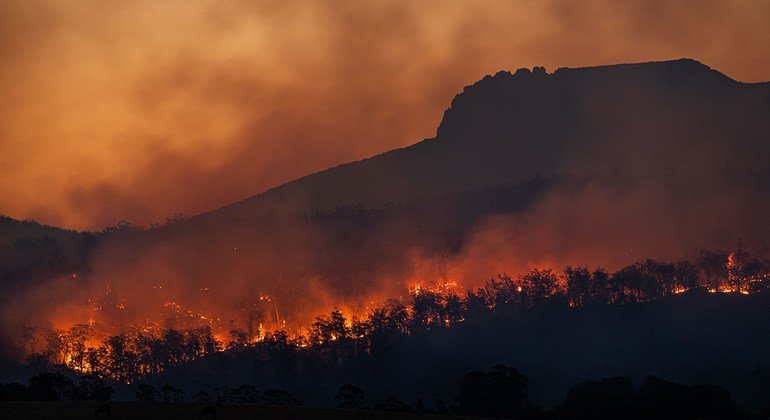We must do more to keep the air we breathe clean: UN weather agency


“Almost everyone on Earth, basically Nine out of 10 people breathe air that is fundamentally unfit for purpose.”, Lorenzo Labrador, Scientific Officer at World Meteorological Organization. “This means that the air exceeds [UN World Health Organization] WHO guideline limits and contains high levels of contaminants with low- and middle-income countries being the most affected.“ .
Thermal Controller
That stark finding is just one of many troubling findings in the WMO’s latest Climate and Air Quality Bulletin. For example, the bulletin notes that the first eight months of 2024 have seen no reduction in severe heatwaves and persistent droughts around the world, increasing the risk of wildfires and air pollution.
“Climate change means we face this situation with increasing frequency. “Science and interdisciplinary research are key to finding solutions,” the UN agency warned.
The link between polluted air and poor health is clear, according to the WHO. It has called for global action to combat “one of the biggest environmental risks to health” and many preventable diseases including stroke, heart disease, lung cancer and acute respiratory diseases, including asthma.
“Ambient air pollution alone, mainly from vehicles and industry, causes more than 4.5 million premature deaths each year,” WMO’s Labrador told reporters in Geneva.
“That’s more than the deaths from malaria and HIV/AIDS combined; air pollution is therefore the biggest environmental risk of our time. But it’s not just a health risk in itself; it also exacerbates climate change.”
Regional trends
A snapshot of regional emissions changes outlined in the UN agency’s report shows a trend of “lower pollution in Europe and China” compared to North America and India, where there has been a rise in pollution emissions from human and industrial activities.
This could be “a direct result of emissions reductions in these countries over the years, and we have seen this trend since we started publishing the newsletter in 2021.”
While it is generally understood that air pollution containing microscopic particles – including sulfates, nitrates, ammonia, soot from human activity and wildfires – is harmful, Mr Labrador reiterated a 2023 UN agency finding that these and other pollutants also have a damaging impact on food security.
Crop yield reduction
“Particulate matter can have serious impacts on crop yields — staple crops — such as corn, rice and wheat,” he said. “Many of the particulate pollution impacts on crop yields are caused by human activities, including land use practices such as plowing and harvesting. In addition, fertilization and burning of crop residue at the end of the growing season.”
New data on natural wildfires around the world last year also shows that the fires that swept across Canada in 2023 were “even more intense in terms of emissions” than the 2021 wildfire season in Siberia — albeit “very, very intense,” the WMO official asserted.
“[The Canada fires] broke the record for surface area burned in a 20-year period.”
In response to this year’s Clean Air Day for Blue Skies on Saturday 7 September, the UN agency called on governments to protect health, the environment and the economy from the costly consequences of air pollution.
“The first thing that cities have to do is recognize that this problem exists in the first place,” said Labrador. “So those cities and countries have to first acknowledge that there is an air quality problem and have enough data around the world to basically acknowledge that this is a global problem, especially in urban areas.”




